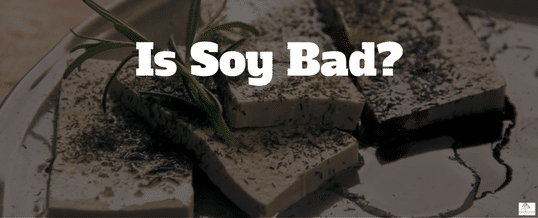Although soy provides an inexpensive source of protein some researchers have voiced concern over its high levels of estrogenic isoflavones and its dampening effect on the thyroid. Raw mature soybeans, used to make tofu and soy milk, contain phytates that prevent mineral absorption and enzyme inhibitors that block the enzymes needed to digest protein.
The mass consumption of unfermented soy is an ongoing experiment. A 2002 British government inquiry into the safety of plant estrogens, found mainly in soy, concluded that neither the risks nor the benefits were supported by clear evidence. The committee or experts urged caution in giving infants, especially those under 12 months old, soy milk or soy-based formula because of the high amounts of estrogenic isoflavones. Their caution was based on a study which showed that infant monkeys fed soy formula had lower testosterone levels. However, some counter that this estrogenic effect in infant monkeys is due to intestinal bacteria unique to these monkeys and that there are serious questions about the relevance of the study.
But for now I would suggest that you use fermented soy where possible and limit the amount of soy used. Ten to twenty years from now we will have a clearer picture of whether too much soy is bad.

